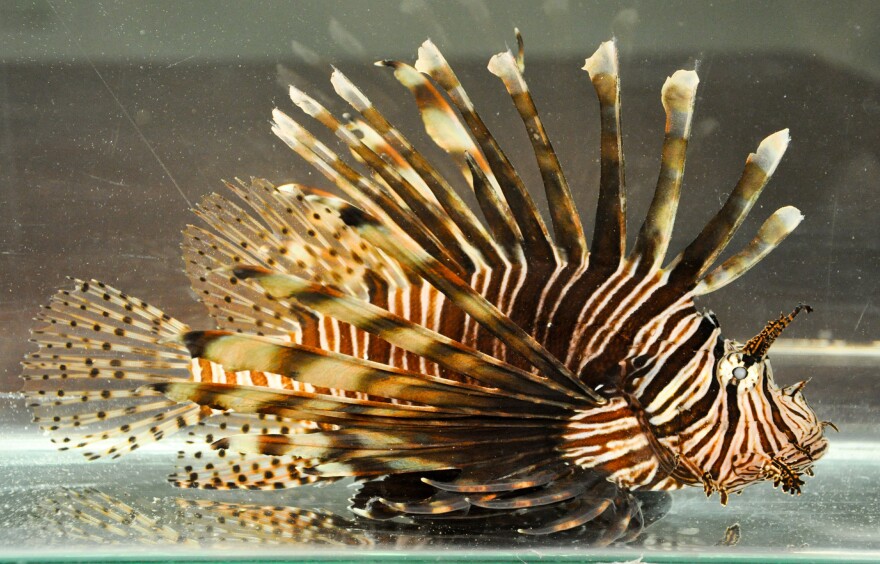As our region cleans up after Eta, it may (or may not) be helpful to learn that yes, hurricanes are staying strong, even over land, thanks to climate change.
All that water the U.S. Army Corps of Engineers discharged from Lake Okeechobee in preparation for Eta was likely very necessary, though perhaps not the best solution, as Calusa Waterkeeper John Cassani points out. Regardless of how best to handle the high water, did you know you can watch the lake water being discharged LIVE (on a 2-minute delay)? The Army Corps has cameras set up on four locks you can watch from the comfort of your home or wherever you happen to be online.
Meanwhile, activists from Sarasota to Tampa are rallying to stop a proposed industrial fish farm operation in the Gulf of Mexico about 45 miles Southwest of Sarasota. The Environmental Protection Agency has approved a permit that would allow Hawaii-based Ocean Era to discharge up to 80,000 pounds of untreated waste directly into the Gulf and surrounding ecosystems. A coalition of organizations including Center for Biological Diversity, Food & Water Watch, Healthy Gulf, Suncoast Waterkeeper, and Tampa Bay Waterkeeper, have filed an appeal with the EPA, arguing the fish farm's permit violates the Clean Water Act, the Endangered Species Act, and the National Environmental Policy Act. Learn more here.
Also on the topic of controversial permitting, environmental regulatory rollbacks during the current Presidential administration have opened up titanium dioxide mining right next door to the Okefenokee National Wildlife Refuge, the largest U.S. wildlife refuge east of the Mississippi River. The project still needs permits from Georgia’s Environmental Protection Division.
In other news, the next time you’re feeling down, just remember that more than 1.1 million people in the United States live without indoor plumbing and that heads of households who are people of color are 35% more likely to live without piped water than whites. The unspoken environmental problem, beyond the lack of public health and civic responsibility, is that their waste is going somewhere. If you have a toilet to flush, give thanks.
If you’re looking for some socially distanced activities, Audubon’s Corkscrew Swamp Sanctuary is now open, with timed ticketing.
Finally, in what is perhaps one of the most fun, rewarding, and delicious ways to handle an invasive species, the 5th Annual Florida Fish and Wildlife Conservation Commission’s Lionfish Challenge saw more than 21,000 of the beauties removed from Florida’s waters.
Got an environment story or tip to share? Email Valerie Vande Panne at Vvandepanne@wgcu.org.







